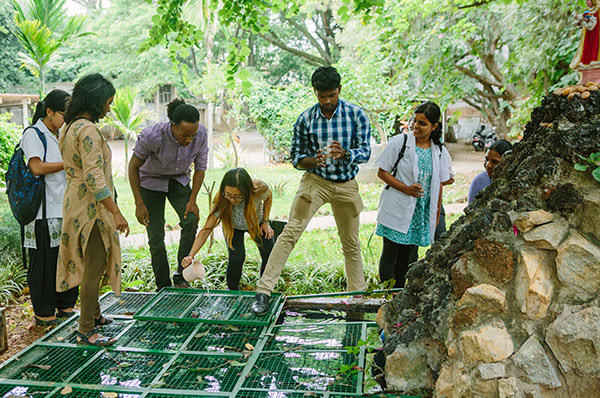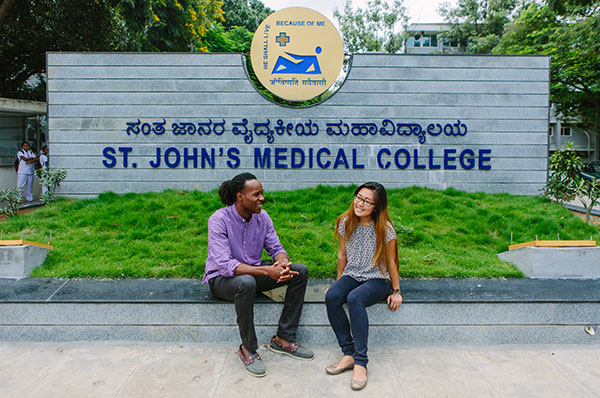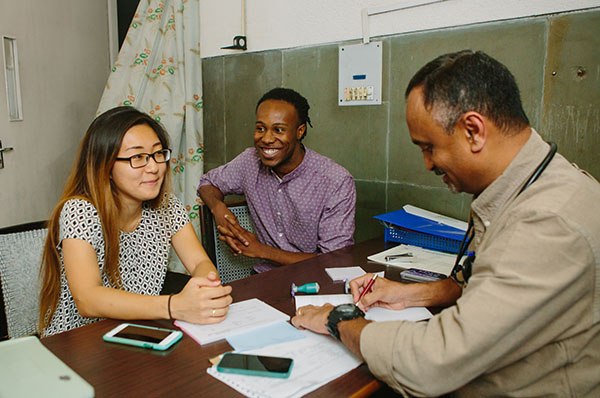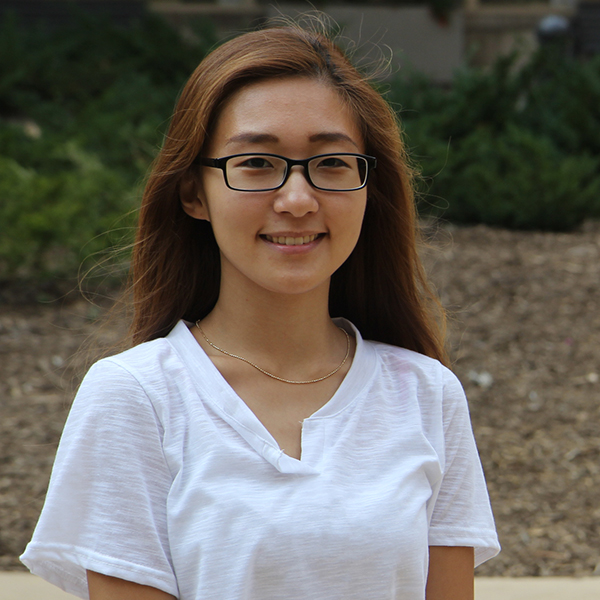All Master of Public Health (MPH) students at the University of Minnesota School of Public Health (SPH) must complete a field experience. Through this opportunity, students not only learn about the field, but also meet mentors and lifelong business connections and apply their public health coursework in real-world settings. Oftentimes, field experiences allow students to find their niche and plan for their career.
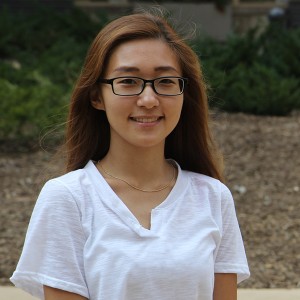
SPH epidemiology MPH student Subin Jang knew she wanted to work in developing countries for her field experience, but she wasn’t quite sure what to focus on. Through her adviser, she found a “perfect fit” in a global experience based in Bangalore, India.
“I knew the program would allow me to see the world, but also to explore research in any field I wanted,” says Jang, who received support from the Martinson-Luepker International Travel Fund to help pay for travel.
The four-week program is coordinated in partnership with St. John’s National Academy of Health Sciences’ Medical College in Bangalore. “The program is designed to be flexible and integrates many health fields so it can fit across different public health interests,” says Ben Capistrant, SPH assistant professor and faculty director of the program. “And St. John’s is unique in that it’s located in Bangalore — one of the largest cities in India — but they also have a rural center in Mugalur where students go to gain a fully developed view of the country.”
In India, Jang joined a research project focused on diabetes and hypertension rates and looked at them at a new urban clinic in Bangalore. She worked with clinic data, but also did in-person interviews and house visits alongside a social worker who did translating. “It was interesting to see the different cultural practices, such as traditions around giving birth, at the urban clinics in Bangalore and the rural clinics in Mugalur,” says Jang.
Jang found that diabetes rates were improving, but hypertension and BMI were not. While doctors have been focusing solely on drug adherence, Jang’s research could show how an improvement in lifestyle affects change.
The project allowed Jang to discover her passion for cardiovascular disease research and she’s focusing on the topic in her second year. She’s also working with her faculty mentor in India to get her research published.
In addition to her research project, the field experience allowed Jang to explore different health care practices in India. Alongside St. John’s medical students, as well as fellow SPH student Patrick Williams, Jang visited a geriatric clinic, did social mapping at a rural clinic, and worked with an NGO doing HIV/AIDS work. “So while my research project was focusing on cardiovascular disease, there were also a lot of opportunities to learn about other topics with other students,” she says.
“The field experience often helps crystalize things for students and can be pivot points in their education,” says Capistrant. “Students see things they don’t see in the classroom and that provides clarity.”
Not only did the experience allow Jang to find her niche within epidemiology, the program also expanded her interests. In her research in India, she was paired with a statistician and saw the important role of biostatistics first-hand, so she has enrolled as a biostatistics minor to further learn data software. “I was already learning SAS, but the statistician at St. John’s taught me a little bit about STATA and I saw how useful knowing that software could be in applying for jobs.”
And because the program allowed her to lead on a research project, she’s now interested in pursuing research and has enrolled in the clinical research certificate. “I want to do more research and I now have stories to share of research I’ve done.”
“In India, I got to see so many things that I would never have imagined,” says Jang. “And now when I’m applying to jobs, I have a real-world, international experience that I’m proud of to share.”
Learn more about School of Public Health programs in India.
